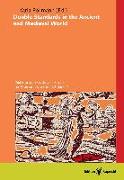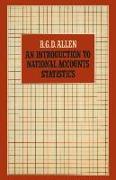- Start
- Double standards in the ancient and medieval world
Double standards in the ancient and medieval world
Angebote / Angebote:
Diese interdisziplinäre Sammlung von Aufsätzen zum Thema »Doppelmoral« möchte einen ersten größeren Beitrag zu diesem Phänomen ethischer Perversion in Antike und Mittelalter leisten. Vertreten sind die Disziplinen Klassische Philologie, Religionswissenschaft, Epigraphik, alte und mittelalterliche Geschichte, antike Philosophie und Rechtsgeschichte, Patristik, Mittellatein und Mediävistik. Im Rahmen dieses Vorhabens wurde Doppelmoral als eine bewusste Spaltung von Moral durch die beteiligten Personen definiert, und es wurden generell zwei verschiedene Möglichkeiten moralischer Doppelbödigkeit festgestellt (Teil I und II in diesem Band), die auch bald Gegenstand theoretischer Reflexion wurden (Teil III). In Teil I sind Beispiele zusammengestellt, in denen (möglicherweise) eine Diskrepanz in der Anwendung einer bestimmten Regel bei einer Gruppe gegenüber einer anderen besteht. Dies geschieht aufgrund der bewußten Entscheidung, daß eine Gruppe in derselben Situation eine andere Behandlung verdient als eine andere. Teil II befaßt sich mit der Diskrepanz, die zwischen den eigentlich befolgten Wertmaßstäben eines Individuums oder einer Gruppe und den nach außen vorgegebenen bestehen kann. Dies kommt einer Maskierung und bewußten (nicht pathologischen!) Spaltung einer Persönlichkeit gleich. Teil III berücksichtigt eine Auswahl von Texten, an denen gezeigt werden kann, daß die Wahrnehmung von Doppelmoral alt ist und schon bald Gegenstand von mehr oder weniger polemischer Kritik wurde.
This interdisciplinary collection of articles attempts to present a first major investigation of moral duplicity in its various facets, including literary sciences, classical, religious, and medieval studies, philisophy, epigraphy, history of law, patristics. For the purposes of this volume, the term »double standards« has been defined as the conscious and intentional splitting of morality by the party involved. Generally, two modes of splitting morality can be observed (parts I and II in this volume) that have also been Subject to theoretical treatment (part III). Part I assembles cases in which there may (or may not) exist a discrepancy between how a certain rule is applied to one group as opposed to another, based on the conscious decision that one group deserves a different treatment from another group, even when both are in the same situation. Part II is dedicated to the discrepancy between the inner attitude or true standard followed and an outer performance or pretended guiding standard. This implies that people put on a mask in a kind of conscious (not pathological!) splitting of their personality. Finally, part III looks at texts that show that the awareness of moral duplicity is old, and soon became the object of more or less satirical or polemical criticism and reflection.
Libri-Titel folgt in ca. 2 Arbeitstagen

